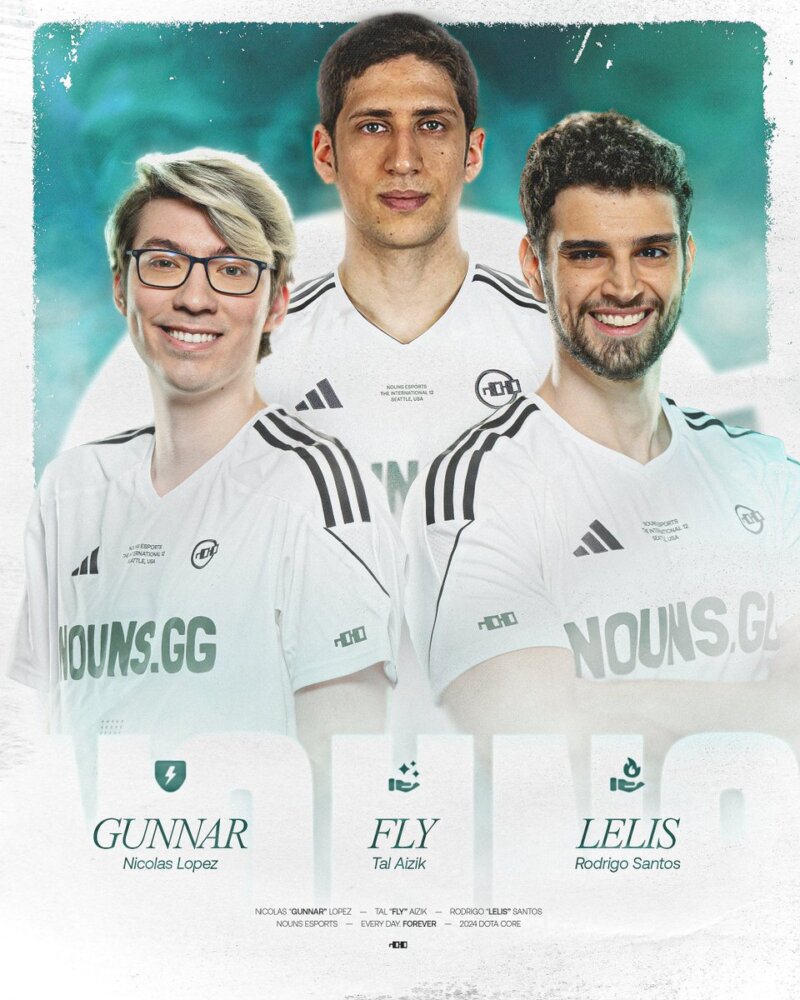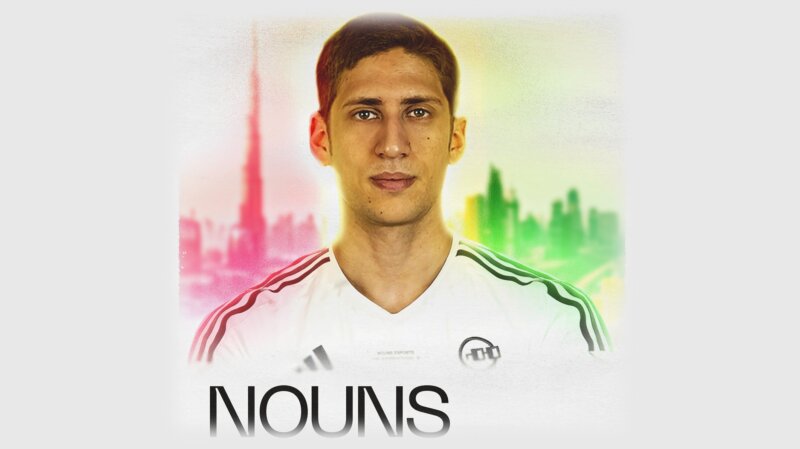It is quite telling when one of the most prominent North American players openly criticizes the region’s ranked matches, commonly referred to as pubs. Tal “Fly” Aizik, a key figure in the North American Dota 2 scene, recently shed light on the declining quality of these matches.
NA pubs: A Grim Reality in Dota 2
During a post-match interview at the Elite League, Fly expressed his disappointment with the state of North American servers, likening them to a “graveyard” for Dota 2 players. He noted a noticeable decrease in player skill and overall gameplay quality in pub matches.
Tal “Fly” Aizik (Image credit: Nouns Esports)
Fly’s remarks about the North American Dota 2 servers echo sentiments shared by many high Immortal-rank players who have noticed a decline in gameplay quality. He highlighted the trend of players, including his teammates, migrating to Western European servers due to the better overall experience they offer.
According to Fly, the shift is primarily attributed to the higher quality of matches in Europe, leaving North American servers populated mainly by South American players. Even South American players, who face high ping on European servers, are forced to play in NA, further changing the competitive landscape of the region.
Escalating Issues of Griefing and Toxicity
The problems affecting North American Dota 2 extend beyond server preferences. The community has raised concerns about widespread griefing, toxicity, and a general decline in sportsmanship.
Players in the high Immortal ranks often recount instances of disruptive behavior, such as verbal abuse, intentional sabotage in-game, and item destruction. These behaviors significantly impact the competitive environment and diminish overall player enjoyment.
Notable Players Who Left NA
Renowned NA player Quinn “Quinn” Callahan stands out as a prime example of success outside the North American region. Transitioning to Gaimin Gladiators, Quinn achieved significant victories, including three consecutive Majors and a runner-up placement at the International 2023.
Another notable figure, Andreas “Cr1t-” Nielsen, formerly Fly’s teammate in Evil Geniuses and Shopify Rebellion, now competes for Team Falcons. Nielsen has secured multiple championships for the team. Many professional teams also opt for boot camps and training sessions abroad, enhancing their competitive edge.

Nouns Dota 2 (Image credit: Nouns Esports)
In conclusion, Fly’s critique highlights a declining competitive scene in North American Dota 2, influenced by negative player behaviors and player migration. This narrative prompts reflection on the future of North American Dota 2, especially with the relocation of significant tournaments outside the region.
What’s the beef between Dota 2 pros RAMZES and Gorgc about?
How to Sell Items in Dota 2


